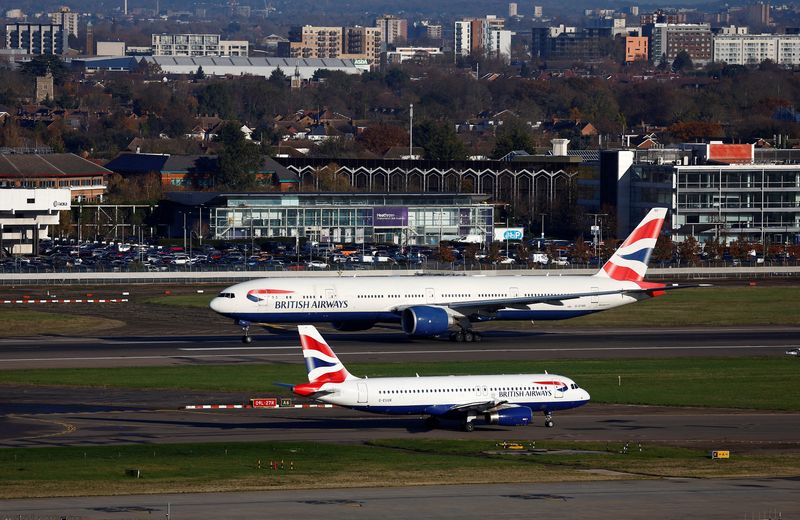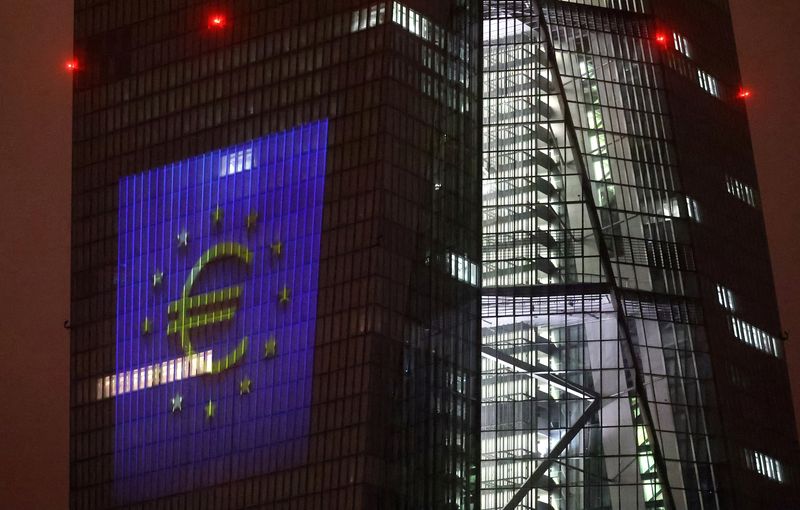By Joanna Plucinska
LONDON (Reuters) – Europe’s major airlines including Lufthansa and Air France-KLM are expected to report another quarter dragged down by rising costs and limited aircraft numbers, with no sign of delivery delays from plane makers Boeing (NYSE:) and Airbus that will improve in the short term.
While demand has remained stable, maintenance costs, adverse weather conditions, air traffic control issues and disruptions in the Middle East continue to weigh on airlines.
However, delays in the delivery of new aircraft are the biggest ongoing problem, forcing airlines to fly older models that are more expensive to maintain, use more jet fuel and reduce traffic estimates.
Lufthansa CEO Carsten Spohr warned that the airline now expects a five-year delay in deliveries of the Boeing 777X.
“We don’t expect to get them until 2026. And we need them,” he told reporters earlier this month.
The German airline is expected to report third-quarter operating profit of 1.3 billion euros ($1.4 billion) on Tuesday, down 9% from a year ago and with a margin of 12.1%, according to a report by the company-led survey of analysts.
According to a Bloomberg report, the airline is losing up to $550,000 per flight on the Frankfurt to Beijing route due to flying older planes with few passengers as it struggles with competition from Chinese airlines that still fly over Russian airspace.
“European airlines are in an extremely unequal competitive position with China, as well as with airlines from the Persian Gulf and Bosphorus,” a Lufthansa spokesperson told Reuters in an emailed statement.
“All airlines from these countries benefit from low location costs, different social norms and high government investments in the aviation sector.”
IAG-owned British Airways has said it will cancel more long-haul flights due to delivery delays from engine maker Rolls-Royce (OTC:).
Air France-KLM will also take a hit to third-quarter revenue, according to analysts, due to lower ticket bookings related to the Paris Olympics. It reports the results on November 7.
These challenges have dragged airline stocks lower over the past six months. And while they have recovered slightly over the past month, investor concerns about the health of the sector have prevailed.
Only IAG has seen a substantial increase in its share price, up more than 20% in the past six months, as the company continues to build on its strength in the North Atlantic market and experiences fewer delivery delays.
The airline is expected to report operating profit of 1.78 billion euros on November 8, according to a consensus of analysts led by the company, up 2% from last year.
DIFFICULT PROSPECTS
Some airlines have said the worst is yet to come. Delivery delays could hit harder in 2026 as current supply chain issues impact production of new aircraft.
That said, with fewer available seats due to limited capacity, airlines may charge higher fares if demand remains robust as expected, analysts say.
But that dynamic doesn’t seem to be manifesting itself.
“Normally, as a result of these delays, you would expect lower levels of capacity to drive results, in a robust demand environment. Yet most airlines in Europe and North America are posting disappointing results,” said Neil Glynn, managing director at AIR Control Tower. .

They will also get a financial boost from lower jet fuel prices next year if they reduce the number of hedges they have.
($1 = 0.9228 euros)


